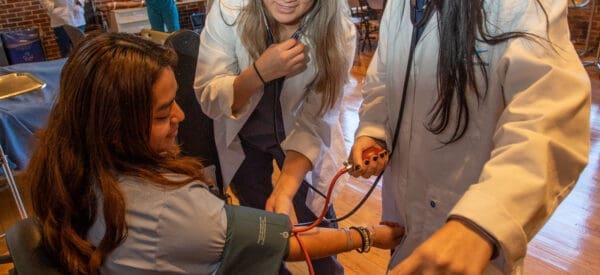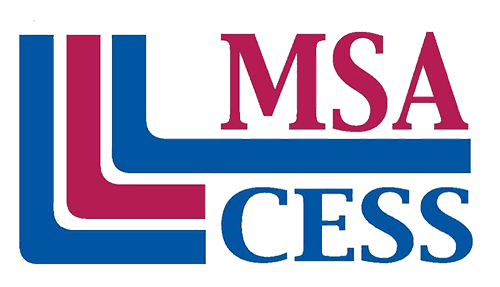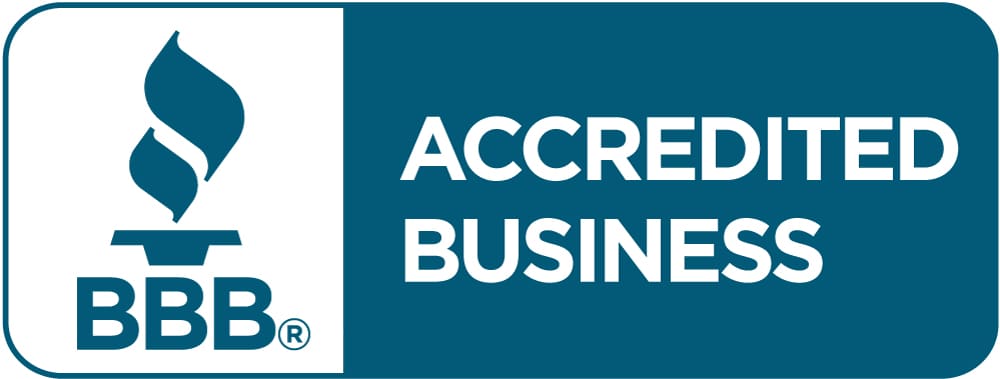With the job outlook for phlebotomists expected to grow 8% in the next few years, there has never been a better time to pursue this in-demand career. At ACI Medical & Dental School, you can become a Certified Phlebotomy Technician (CPT) in just four months, ready to work in hospitals, clinics, and other healthcare settings. Here is some helpful information about what phlebotomy is, and how to become a phlebotomist in New Jersey.
What Does A Phlebotomist Actually Do?
A phlebotomist is a medical professional trained to draw blood from patients for clinical or medical testing, transfusions, research, or donations. Their responsibilities also include ensuring patient comfort, safety, and the integrity of the blood samples they collect. Here’s a detailed breakdown of what a phlebotomist does:
- Patient Preparation: Before drawing blood, a phlebotomist will typically verify the patient’s identity to ensure the right patient is receiving the correct procedure. They’ll also explain the blood draw process to the patient and answer any questions to help ease any anxieties or concerns.
- Venipuncture (Drawing Blood): This is the primary responsibility of a phlebotomist. Venipuncture is the technical term for drawing blood from a vein. Using a needle, the phlebotomist punctures the patient’s vein (usually in the arm) to collect blood samples in tubes or bags, depending on the purpose of the draw.
- Equipment Handling: Phlebotomists use various equipment, including needles, vials, tourniquets, and sometimes specialized machines for blood donations. They must ensure that all equipment is sterilized and safe to use.
- Labeling and Handling Samples: Once the blood is drawn, it’s crucial to label the samples accurately to avoid mix-ups or contamination. The phlebotomist ensures that each vial is labeled with the patient’s information and the type of test required.
- Data Entry: Phlebotomists often enter patient information and test results into a computer system. This ensures that doctors, nurses, and other healthcare professionals have access to the blood test results.
- Safety and Hygiene: They must adhere to strict safety protocols to protect themselves and their patients. This includes wearing gloves, disposing of used needles in sharps containers, and ensuring that their workspace is clean and sanitized.
- Blood Donations: Some phlebotomists work at blood donation centers where they draw blood from donors rather than patients. Here, they’ll also monitor donors to ensure they are feeling well post-donation.
- Patient Communication: It’s essential for phlebotomists to have good communication skills as they often serve as a calming presence for patients who may be nervous about having their blood drawn.
- Continuous Learning: As with many healthcare professions, phlebotomists must stay updated with the latest techniques, safety protocols, and regulations.
Which Phlebotomy Certification Is Best?
The National Healthcareer Association (NHA) is one of the recognized certifying bodies for phlebotomy technicians and other allied health professionals in the United States. While there are several phlebotomy certifications available, there are several reasons why many consider the NHA a top choice:
- Recognition: The NHA is a nationally recognized organization, making its certifications widely accepted by employers and healthcare institutions across the country.
- Comprehensive Examination: The Certified Phlebotomy Technician (CPT) examination offered by the NHA tests candidates on all essential aspects of phlebotomy, ensuring that those who pass are well-prepared for their roles.
- Preparation Materials: NHA provides a range of study materials, including study guides, practice tests, and interactive online resources, to help candidates prepare for their certification exam.
- Continuing Education: The NHA offers opportunities for continuing education, ensuring that certified professionals stay updated with the latest practices and developments in their field.
- Reputation: Over the years, the NHA has built a solid reputation in the healthcare community, making its certifications sought-after by many employers.
What Do You Need To Be A Phlebotomist In NJ?
To become a phlebotomist in New Jersey, individuals typically follow a series of steps to meet state and employer requirements.
- High School Diploma or Equivalent: Before enrolling in a phlebotomy program, individuals need a high school diploma or GED.
- Complete a Phlebotomy Training Program: Enroll in and successfully complete a phlebotomy training program that has been approved by a recognized accrediting agency. These programs offer a combination of classroom instruction and hands-on clinical training.
- Certification: While New Jersey does not require phlebotomists to be nationally certified, most employers prefer or require it. The certification process involves passing an examination.
- Gain Experience: Some employers may require new phlebotomists to have a certain amount of experience from an on-site internship, although many will provide on-the-job training for newly certified phlebotomists.
- Maintain Skills and Knowledge: It’s essential to stay updated with the latest phlebotomy techniques and safety protocols. This can be achieved through continuing education opportunities provided by certifying bodies or other professional organizations.
- Background Check: Many healthcare employers will require a background check and possibly a drug screening as part of the hiring process.
- Other Employer Requirements: Depending on the employer, there may be additional requirements, such as proof of immunizations, a health screening, or completion of a Basic Life Support (BLS) or CPR certification.
While these are the general steps to becoming a phlebotomist in New Jersey, individual employer requirements and preferences can vary. It’s essential to research and plan accordingly based on your career goals and desired workplace.
How Long Is Phlebotomy Training?
At ACI Medical & Dental School, you can get your phlebotomy certification in just four months, during which you can also complete your included on-site 180-hour internship to get real work experience at a healthcare facility.
Where Can I Get Phlebotomy Certification Near Me?
Conveniently located in Eatontown, NJ, our Medical Assistant Certification Program will prepare you to become a Certified Phlebotomy Technician (CPT) in just a matter of months. Our program also includes:
- EKG (Electrocardiogram) Certification
- Patient Care Technician (PCT) Certification
- 180-hour internship
- Flexible day and evening class options
- Financial Aid options
Contact ACI Medical & Dental School today to learn more!








